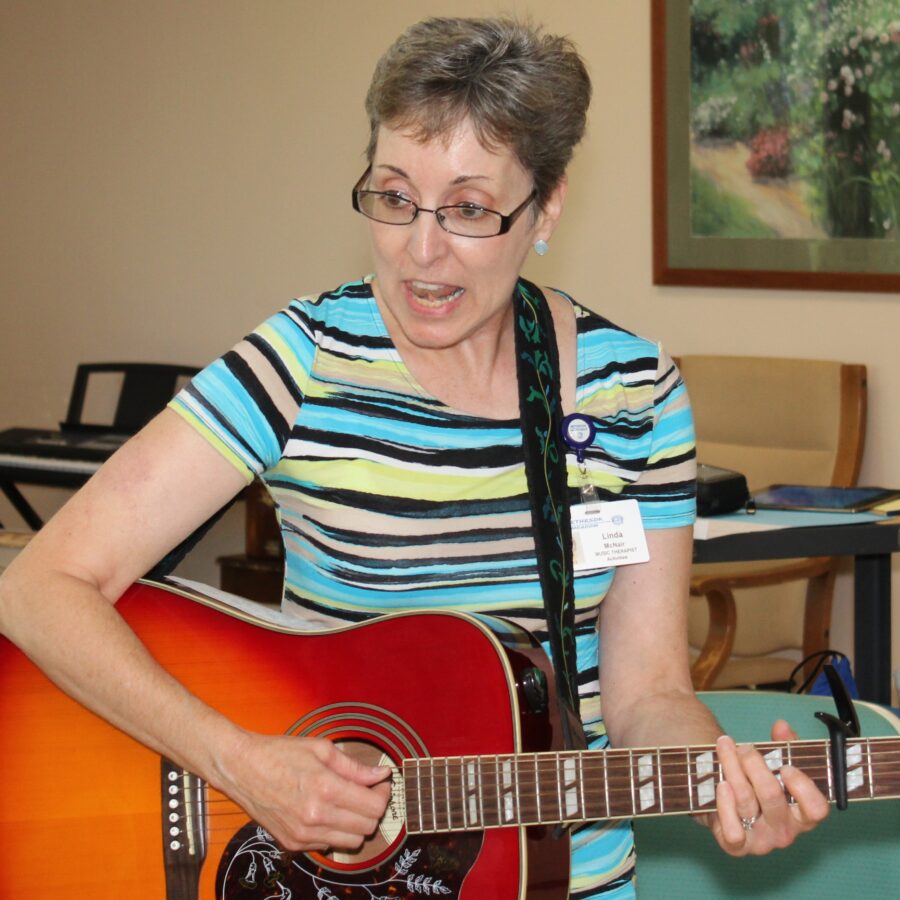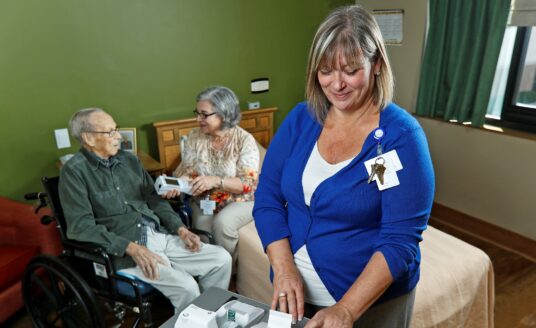Music therapy has been around since before the 1900s, but didn’t come into its own until the First World War, when musicians would visit hospitals and play for wounded soldiers. Today, music therapy is recognized for its ability to address a wide range of concerns in seniors, and is used in senior communities across the country.
What is Music Therapy & Who Can Benefit From It?
According to the American Music Therapy Association, music therapy is “the clinical and evidence-based use of music to accomplish individualized goals.” Any senior can benefit from music therapy, ranging from those who have chronic pain to Alzheimer’s. Since music therapy is non-intrusive and non-threatening, it is especially ideal for seniors who find other forms of therapy uncomfortable and frustrating.
A common misperception is that an individual has to have some musical talent to participate in and benefit from music therapy. This thought couldn’t be further from the truth. Music therapy is an intervention technique, meaning that the intended goal is nonmusical.
For example, a group who meets once a week and sings along with a musical therapist is not doing so in order to perform. Rather, they are learning how to increase breath support to help with breathing difficulties.
How Does Music Therapy Work?
Music therapy can treat or aid seniors with a wide variety of ailments or difficulties by stimulating the brain, and, when combined with movement, also helps promote physical health.
Dementia & Alzheimer’s Disease
In the case of seniors who have dementia or Alzheimer’s, music has been shown to have a positive effect on our brains and stimulate areas associated with:
- Mental stimulation, which contributes to reminiscence and a greater satisfaction with life
- Mood enhancement through singing, listening to preferred music, and other applications of music
- Self-Empowerment achieved through carefully planned successful musical experiences
- Awareness of self and environment, which corresponds to the increased attention to music (this is especially important in individuals with dementia and Alzheimer’s)
- Anxiety and stress reduction for the older adult and caregiver
- Non-pharmacological management of pain and discomfort through relaxation techniques and guided music listening
- The ability to evoke musical responses even when no other approach is effective
- Structure to promote rhythmic and continuous movement or vocal fluency as an adjunct to physical rehabilitation therapy
- Sharing creative music experiences with spouses and families
- Social interaction with caregivers and families
As you can see, music therapy is definitely much more than just sing-alongs and bingo!
Supportive Senior Living in St. Louis
Whether in independent living, assisted living, memory care, or skilled nursing, Bethesda offers the right amenities, services, programming, and staff to make every day full of purpose. See for yourself. Contact us today to schedule a tour of the community closest to you.
Want to find out more?
If you’d like to stay up to date with Bethesda Health Group, sign up here to receive our blog and newsletters!
"*" indicates required fields
Related Articles
Want to find out more?
If you’d like to stay up to date with Bethesda Health Group, sign up here to receive our blog and newsletters!
"*" indicates required fields



